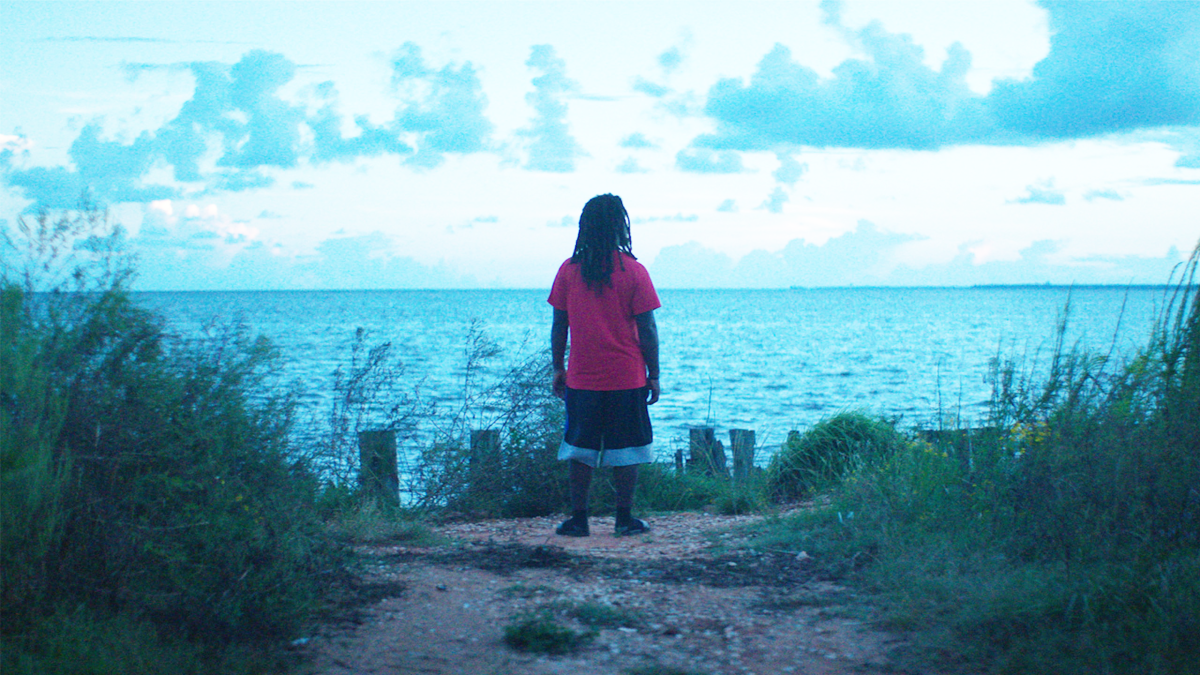Early in Margaret Brown’s exquisite new documentary “Descendant,” Africatown, AL resident Joycelyn Davis calls out the possible narrative pitfalls of chronicling the recovery of the Clotilda, the last known slave ship to arrive in the United States in 1860 — 50 years after the international slave trade was abolished. Just after a town hall in which marine archeologist Dr. James Delgado and his team introduce efforts aimed at recovering the long-lost ship, Davis remarks, “I don’t want the momentum of the story to be focused on the ship” before pausing to consider the influx of attention, money, and, ultimately, confrontations that could come with the Clotilda’s discovery. She continues, “I could care less about the ship.”
Brown’s documentary uses Davis’s words as a central thesis. Less interested in the physical recovery efforts than with chronicling the residents of Africatown — a historically black community of Clotilda descendants located within the city of Mobile — as they work to recover their own narrative amid renewed interest in the ship, “Descendant” is a stunning work of cultural ethnography.
READ MORE: Sundance 2022 Preview: 20 Must-See Movies From The Festival
Building off her 2008 documentary “The Order of Myths,” which explored segregated Mardi Gras celebrations in Mobile, “Descendant” augments, and amplifies, other recent works that have reconsidered the legacy of the Clotilda, namely Zora Neale Hurston’s “Barracoon: The Story of the Last Black Cargo” (written in 1931 but published in 2018). That work, which is oft-quoted in the film, featured the first-person narrative of Cudjoe Lewis, Africatown resident and the presumed last living survivor of the middle passage on the Clotilda.
In many ways, Brown uses Lewis’s narrative, as well as the larger story of the Clotilda, to explore how Africatown has been marginalized by the larger city of Mobile. Much of the land has been sold off piecemeal to various industrial corporations through shell companies owned by the Meahers — the very family that owned the Clotilda 160 years earlier. As is often the case, a rise in public health problems came along with such industrialization, leaving the residents to grapple with contaminated land and water and an increased risk of cancer from a plant run by Industrial Papers.
Brown, along with editors Michael Bloch and Geoffrey Richman, succinctly explore these intersections — of racism, city zoning, public health, and historical recovery — giving residents the space to not only historicize Africatown, but also trace these historical antagonisms (whether it be with the Meaher family or the city at large) to the present. The reverberations of the past are personified through the stories that Davis, Emmett Lewis (a direct descendent of Cudjoe), Veda Tunstall, Vernetta Henson, and other Clotilda descendants tell about Cudjoe, Clotilda, and Africatown. As they move through graveyards, historical sites, and museums— followed by cinematographers Justin Zweifach and Zac Manuel, doing impressive work — their narratives showcase just how present this history is within Mobile.
As Brown’s film makes clear, the discovery of the Clotilda may bring in tourism (i.e. money), but more importantly, it may give the community more negotiating power as its residents work to reclaim their land and assert their story in the face of a city, and state, that isn’t interested in relitigating the past. Those who followed the story in 2019 know that the Clotilda was eventually found, a development that the film explores but doesn’t dwell on.
Instead, as Davis says, the Clotilda isn’t just a physical ship but a powerful symbol of a community seeking to re-assert their own identity in the face of a disinterested government and a family that has actively tried to erase Africatown in an effort to ignore their past. “Descendant” doesn’t provide easy answers for how individuals and governments can begin to grapple with this history, but it begins with the acknowledgment that, despite the Meahers’ efforts to erase the Clotilida, its history will live on. [A]
Read along with all our coverage of the 2022 Sundance Film Festival





